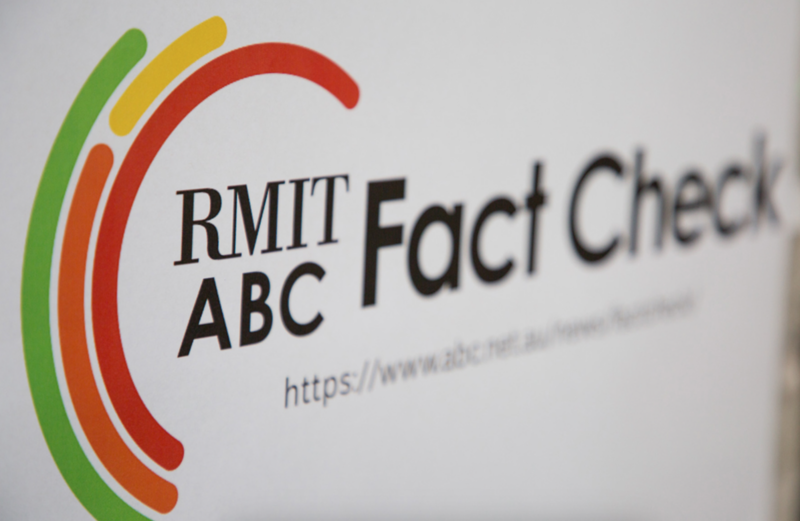
The misinformation bill – impossible to police and easy to weaponise
In 1899, Charles H. Duell, commissioner of US patent office, declared that his job would soon become redundant because “everything that can be invented has been invented”.
We can laugh at ol’ Chuck’s naivety now, some 125 years later, because we are safe in the knowledge that since then we’ve invented a bunch of stuff: televisions, tractors, the internet, the spork.
However, given his esteemed title and assumed expertise on the subject, Duell’s take on the matter was taken as fact – and therefore it would have flown under the radar of the Albanese Government’s new misinformation bill. Everyone would have been sharing that around on their sepia iPhone screens and soon all inventive industry would be squashed.
We’d be stuck in 1889, and wouldn’t know it because it would be censored from Facebook – which wouldn’t be invented. It would be a paradoxical nightmare!
If you haven’t heard much about the Government’s new Combatting Misinformation and Disinformation Bill, it may be because most of the focus on the Government’s social media crackdown of late has been focused on the under 16 TikTik Twitter age limit debate.
A more cynical read of why you haven’t given this new bill the attention it deserves is because it was snuck through during the distraction of a Trump victory, and was therefore duly ignored and underreported.
The Combatting Misinformation and Disinformation Bill is impossible to police and easy to weaponise. It gives the ACMA an outsized reach over the likes of Facebook and the platform formerly known as Twitter, and tasks all social media platforms operating in Australia with policing the veracity of the entire country’s written output. It also allows the ACMA to effectively censor the free discussion of a wide variety of topics.
It’s important to make a distinction between misinformation and disinformation.
Misinformation is false information that is spread, regardless of intent to mislead. Disinformation is deliberately misleading, biased, or manipulated information.
The bill bundles both these together and is correct in doing so in theory, because intent is irrelevant when it comes to whether something is true or not. But this bundling muddies the meaning of both, and makes the definitions seems interchangeable. It will also have people scared they will be penalised for innocent mistakes every time they write something on the internet. This is a problem.
The bill requires social media companies to “implement measures to prevent or respond to misinformation or disinformation on the platforms” with “the purpose of providing adequate protection for the Australian community from serious harm caused or contributed to by misinformation or disinformation on the platforms”.
That is extremely broad in scope. And it gets broader when we look at what the Bill classifies as the meaning of serious harm.
14 Meaning of serious harm
For the purposes of this Schedule, serious harm is:
(a) harm to the operation or integrity of a Commonwealth, State, Territory or local government electoral or referendum process; or
(b) harm to public health in Australia, including to the efficacy of preventative health measures in Australia; or
(c) vilification of a group in Australian society distinguished by race, religion, sex, sexual orientation, gender identity, intersex status, disability, nationality or national or ethnic origin, or vilification of an individual because of a belief that the individual is a member of such a group; or
(d) intentionally inflicted physical injury to an individual in Australia; or
(e) imminent:
(i) damage to critical infrastructure; or
(ii) disruption of emergency services;
in Australia; or
(f) imminent harm to the Australian economy, including harm to public confidence in the banking system or financial markets;
that has:
(g) significant and farreaching consequences for the Australian community or a segment of the Australian community; or
(h) severe consequences for an individual in Australia.
That is so broad as to be impossible to police. It’s also so broad that it’s scarily easy to weaponise; to force censorship upon any viewpoint, theory, fact, that doesn’t align with political – or personal – motives. Why is “harm to public confidence in the banking system or financial markets” included?
It’s as epic in scope as Homer’s The Odyssey, and aimless as Homer’s make-up gun.

This Bill is purely about misinformation and disinformation – which are held to the same strict account. It’s not about forcing social media accounts to remove extremely violent or sexual content; they are already required to do this, and do this of their own volition – and there is little controversy over the need for this to be done, swiftly and strictly.
At any rate, the Government’s ability to stronghold the tech giants in this regard was tested nicely in April when Elon Musk (D.O.G.E.) cried ‘free speech’ and threatened legal action after the Federal Court ordered X to remove videos of a holy man being stabbed in a Sydney church. After his dummy spit, he complied. So they already have that power.
If policing the truth is hard, then ascertaining what the truth is, is harder still.
When Trump’s political advisor, Kellyanne Conway, famously claimed the White House Press Security wasn’t lying, but giving “alternative fact”, she was widely derided – and rightly so, it’s laughable – but that doesn’t mean the term is without merit. Truth is often best served retrospectively, while the news – by definition – has to be written on the roll, in situ, with the ‘facts’ available as we have them right now – with whatever relevant information the writer has available. Most ‘fake news’ isn’t borne of ill will, it’s the time crunch of 24/7 news and diminished resources in newsrooms mixed with biases (unconscious and conscious), commercial concerns, the narrow lens of the reporter’s age, wisdom, and experience, and the lack of hindsight available when reporting on things happening right now.
That’s part of why people don’t trust online news media outlets.
According to the 2024 Edelman Trust Barometer, just 40% of Australians trust the media. In 2023, a survey from the News and Media Research Centre at the University of Canberra found concerns about so-called “fake news” in Australian jumped to 69%, up 5% from last year.
Last month, The Guardian, The Daily Mail, The Sydney Morning Herald, and news.com.au lost over 3 million readers between them. Are they going to social media for their news? Maybe. That same Edelman report says 35% “get most of my information about new technologies and innovations” from social media. Social media is a great place for information, because there’s so much there, all the time. Scroll down on X, and there’s new information. All the time. It’s great. It’s terrible. It’s uncontrollable, despite a badly-formatted Bill.
RMIT Fact Check is flat out fact-checking the handful of Australian mainstream outlets, with a dedicated lab running out of a university, during very specific national moments, such as last year’s referendum. They were still criticised for bias, and being incorrect. Meta suspended its partnership with them for two months last year due to these concerns. (Plus they forgot to get accredited – oops!).
If the media can’t be adequately policed – then how will social media be policed? The answer: unevenly, unfairly, and inadequately.
Take the recent example of the conspiracy theory that COVID-19 originated from a bat in Wuhan, a theory fuelled by racism and misinformation and disinformation and all sorts of ugly motives, and propelled around the globe by social media – but also by mainstream media – and which turned out to be, actually, factually, true – a simple fact of the origin of a virus that doesn’t lean on motive or morals. Scientists discovered this by reanalysing genomes collected from an animal market in Wuhan, it turns out. Good ol’ science.
Your racist uncle Pete spread that Wuhan bat lab article on Twitter because he is racist. Your scientist uncle (also named Pete) shared a piece about scientists reanalysing genomes on Facebook because he finds the science fascinating – and also ‘cos he wants to show off a bit. Both would have been swatted down had this law been in place during the pandemic, and had the current government wished to silence all online chatter about this particular topic – say, for geopolitical-relations reasons with our major trading partner. It’s tricky, isn’t it?
I’m not saying that people aren’t swayed by disinformation on social media in ways that is harmful, tragic, deadly, horrible – this happens every day.
I’m saying this bill will backfire because Albanese wants it to be a shield, when it will be used as a sword.
Probably not by him – I’m not doubting the Government’s motives are anything but pure. But it seems reckless to force the social media giants to censor content – especially when one of the major ones is owned by a billionaire megalomaniac who now has a US government position and therefore could theoretically censor the voices of millions of Australians should it meet any one of his many shifting needs, regardless of ACMA orders.
Here’s a fun thought if you’re up for bending time and space this morning.
Galileo is, of course, best known for his mad Bohemian Rhapsody shout-out, but also known for publishing writings in the 1600s that supported the heretical theory that the Earth might rotate around the sun. He was sentenced to house arrest for his crimes against logic and the Lord – but, don’t worry, it has a happy ending – he received a pardon from the Pope three centuries later.
These days his rambling Facebook posts would be censored – assuming he had decided to move to Australia, of course.
The point is, nobody knows anything. There’s an entire field named ‘scientometrics’ that measures the quantitative aspects of academic papers, and in this field, they measure the “half-life of facts” – which is the amount of time that passes before half of the facts in a particular field are superseded or shown to be untrue.
For psychopharmacology – the drugs used to treat a variety of mental health conditions – the half-life is 3.3 years!
Half the drugs we are using now to treat our brains, minds, thoughts, moods, will be proven ineffective or redundant by the time autumn hits in 2028. Don’t bother buying the extended warranty, no matter how hard they push it.
Again, nobody knows anything. Maybe vaccines cause autism after all. Maybe the 15-minute city is a ploy to kill the fuel industry. Maybe Tom DeLonge is correct, and Aliens Exist… is a good blink-182 song. Nobody knows anything. And what we do know, we don’t know we know. Ya know?
Could it also be at all possible that this Bill may crush the open discourse of ideas and theories that lead to more developed and advanced ideas and theories – and stifling speech on the main platforms on which this takes place could also be damaging to our society and slow intellectual and scientific thought?
Sure, social media is filled with nefarious people intent on brainwashing young angry men slowly forming dangerous views, the disenfranchised looking for power en masse, or simply those searching for a higher meaning to all this chaotic pointless mess who are primed to wind up on a hill dressed in a white loincloth, chanting revolution, making beads, and planning for the end of civilisation.
I agree: this is a scourge. Remember, the government can and already does force the removal of ultra-violence, hate speech, all of that.
And don’t forget, there’s plenty of brainwashing to be had in the real world.
Charles Manson didn’t have Facebook remember – yet he managed to convince a bunch of gullible people he was receiving messages to kickstart a race war, from a Beatles song about a rollercoaster.
There are many facets of everyday life that don’t stand up to fact checking. Just step outside and stare above the rooftops at all the steeples. Listen to those out-of-tune bells tolling while you’re sleeping off a 4am kebab hangover. Faith, by its very definition, is absent of proof. Pick your favourite after life – it cannot meet the burden of truth. Is all religious speech to then be stricken from social media? I doubt it. Another thing not to forget: during Albo’s first speech to parliament in 1996, he declared his mother raised him “with three great faiths – the South Sydney Rabbitohs, the Australian Labor Party and the Catholic Church.”
Pick up a primary school history book from the 1990s and note that complete removal of 60,000 years of local Indigenous history. Look at a map of the world – it’s a fantasy: the powerful countries literally inflated the size of their continents so it appears they have more land-mass/power. You’ll fall down a Google hole once you start looking into this map disinformation, all of which originated far before Facebook.
In that same Albanese speech in 1996, he said of his political legacy: “For myself, I will be satisfied if I can be remembered as someone who will stand up for the interests of my electorate, for working class people, for the labour movement, and for our progressive advancement as a nation into the next century.”
Stifling free speech is not progressive advancement. Even if that’s not the aim, this will be used for censorship, and oppression.
That quote about the invention I opened with is widely believed to be apocryphal, with the actual derivation argued to be everything from an old joke book, to a scholar a half-century earlier, who also believed it to be true of his time that they had reached peak invention.
That research study with the bats was from September, so it’s two months old, and true for now – but it soon may not be. But at least we’re allowed to know it’s true now.
Enjoy your weekend.






